Dr. Drew Pinsky is a busy, busy man.
Hurriedly walking into his office in the CNN building on Sunset Boulevard for an interview, Pinsky offered a quick greeting, sat down at his desk, typed away on his computer and recorded an audio introduction for that evening’s upcoming HLN cable broadcast of “Dr. Drew on Call.”
“A man is tased by police as two terrified children watch from the backseat,” Pinsky said, speaking energetically into a digital recorder. “Let’s get started!”
And with that, he turned his attention to the interview, sort of — he alternated between responding directly to questions and turning to his computer, perhaps a symptom of his being a workaholic. Since his medical school days at USC in the 1980s, Pinsky seemingly has held multiple jobs at any given time.
At the time of the interview last fall, the number was six: two television shows, “Dr. Drew on Call” and MTV’s reality show “Teen Mom Reunion Special”; his nationally syndicated radio show, “Loveline,” which takes calls from young adults seeking advice on topics like relationships, sex and drug addiction; “The Dr. Drew Podcast,” a weekly show hosted by Carolla Digital, a podcast network in Glendale created by comedian Adam Carolla, who used to co-host “Loveline” with Pinsky and who collaborates with him on “The Adam and Dr. Drew Show” podcast; and finally, but not to be overlooked, Pinsky’s general medicine practice in Pasadena.
Since then, the number of Pinsky’s jobs has risen to seven, thanks to the Jan. 20 launch on TalkRadio 790 KABC of “Dr. Drew Midday Live With Mike Catherwood,” yet another radio program that gives listeners access to Pinsky’s advice on relationships, medicine and addiction.
Oh, and he’s married and has two boys and a girl — triplets! — in college.
Born and raised in Pasadena, Pinsky attended Hebrew school once a week until around third grade, when, he said, his parents “jumped ship” religiously and more or less abandoned having a Jewish home. Pinsky characterized his extended family, though, as “very Jewish.”
While Pinsky’s regular appearances in the media put him on par in the public eye with the likes of Dr. Sanjay Gupta and Dr. Mehmet Oz, his path to medicine easily could have been sidetracked — by him.
While at Amherst College in the late ’70s and early ’80s, Pinsky knew he had a knack for medicine, but he said he rejected it and dabbled in music and theater instead. During those years, as he said on one of his podcasts, he even struggled with some of the issues that listeners regularly call in about, such as anxiety disorders and panic attacks. Eventually, he “vigorously” returned to studying medicine, getting a medical degree from USC and completing his residency at LAC+USC Medical Center and Huntington Memorial Hospital.
Pinsky’s foray into public life began in medical school when he appeared on KROQ-FM’s “Ask a Surgeon” segment on Sunday evenings, which eventually morphed into “Loveline”, the show that went national in 1995 and paired Pinsky with Carolla, who left in 2005.
Pinsky’s media footprint only expanded after that. He was an on-camera doctor and therapist for the first season of the CBS reality series “Big Brother,” and hosted “Strictly Sex With Dr. Drew” and “Strictly Dr. Drew” on Discovery Health Channel. Later, he was the lead doctor on “Celebrity Rehab With Dr. Drew” and “Sex Rehab With Dr. Drew” on VH1.
However sincere Pinsky’s motives, he has his critics. A New York Times Magazine feature on Pinsky in 2009 addressed whether “Celebrity Rehab” is therapy or tabloid, “potentially exploitation in denial.” But as he responded to writer Chris Norris, “I was never motivated to do these appearances by fame, but to explain the medical facts behind stories so distorted by media ignorance.”
In a way, his interest in drug rehab mirrors his path to medicine in general — initial rejection followed by a passionate embrace. He said when he first learned about the 12-step recovery method, his reaction was: “What is that goofy s**t that they do in those rooms? Those 12 steps on the wall — what a bunch of B.S.”
But eventually, seeing some people go from rock bottom to what he termed a “flourishing existence,” Pinsky began to take the program seriously, incorporating it with the team of rehab medical professionals he works with on and off camera. He said his team focuses on people with severe cases of addiction who are at the point where they will die if they don’t enter treatment.
“This is going to sound grandiose, but other than my team, other than a team like mine, people don’t understand how to deal with these people,” Pinsky said. “A properly selective case for me, in my opinion, would not be treated other than the way I would treat it.”
In 2013, he experienced a medical crisis of his own and of a much different sort — prostate cancer. It was discovered after his wife, Susan, encouraged him to get a physical following several bouts of sickness, including a severe flu.
“I went kicking and screaming the whole way,” Pinsky said.
Doctors first misdiagnosed him with prostatitis (inflammation of the prostate) until a biopsy revealed a low-grade tumor that required surgery, which was performed at Cedars-Sinai Medical Center. Although Pinsky’s recovery took months, he only missed one or two weeks of “Loveline,” then broadcast from his home, while also taking patient calls and working on a book.
Cancer-free since June 2013, Pinsky joined the board of the Prostate Cancer Foundation in September 2014 to help raise awareness. His urologist during his fight with prostate cancer, Dr. Stuart Holden, is the organization’s medical director.
On television, radio, podcast and even in interviews, Pinsky rarely touches on politics. But he does philosophize on social trends that he thinks help mold the people who call into his show with addiction problems and psychological or psychiatric issues.
Pinsky’s theory is that a “trauma epidemic” — neglect, sexual abuse, domestic violence — afflicting the United States has created more Americans suffering from narcissistic disorders, emotional imbalances and feelings of emptiness. That leads people to seek comfort or escape in drugs, alcohol and fame.
“If you look at other periods of history that have had those kinds of trends, the fix becomes a revolution, people act out,” Pinsky said. “I think the fix is just restoring our family health and focusing on child rearing and focusing on what’s important — basic values and gratitude.”
Pinsky’s topics of discussion — often edgy and risque — combined with his quick on-air medical and psychological analyses and advice have brought him fame and money along the way. But, as he told the Journal, he’s much more interested in completing a task than becoming a cultural icon:
“I view myself as willing to take risks to get the job done, and by getting the job done, I mean reach an audience that may or may not want to hear what I have to say.”
***
Correction (4/2, 6:00 p.m.): The Pinskys' triplets are two boys and a girl, not three boys.






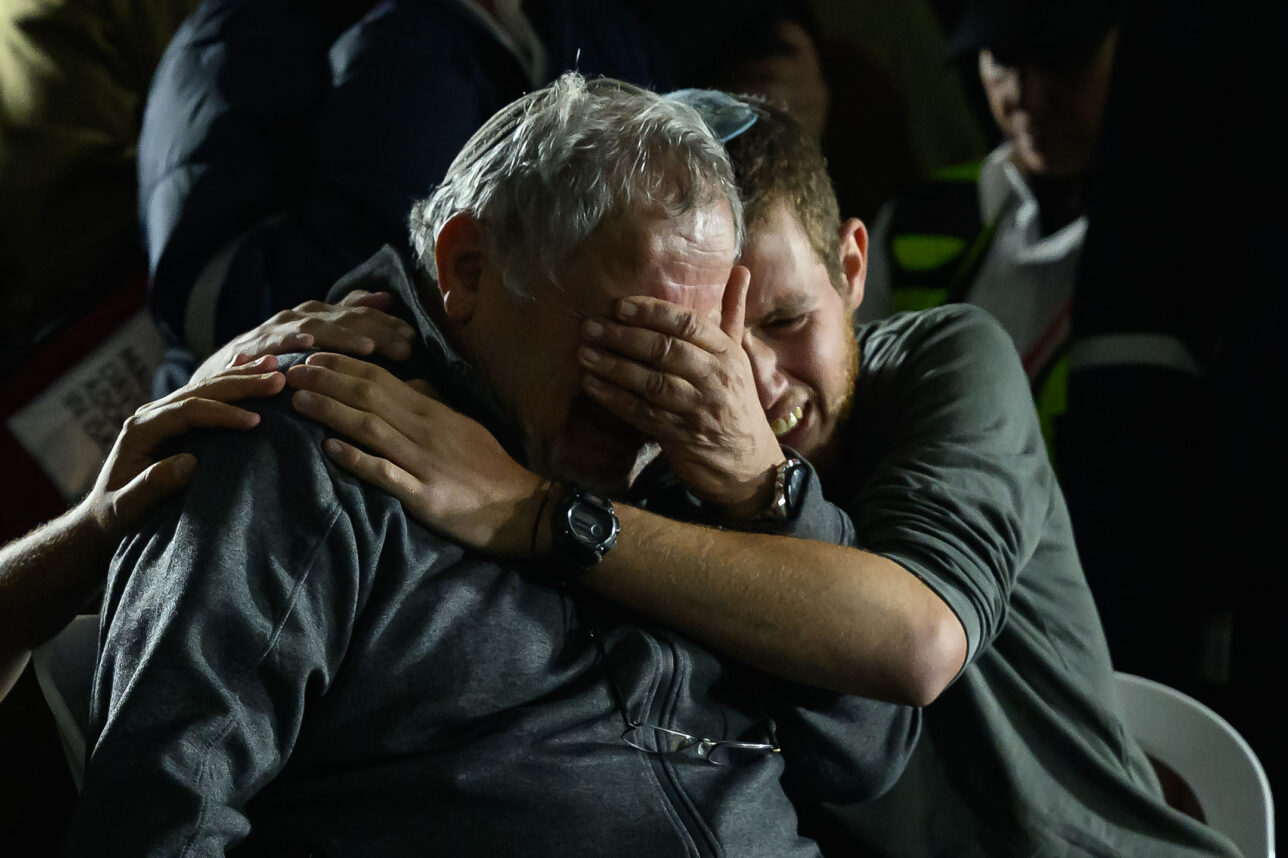

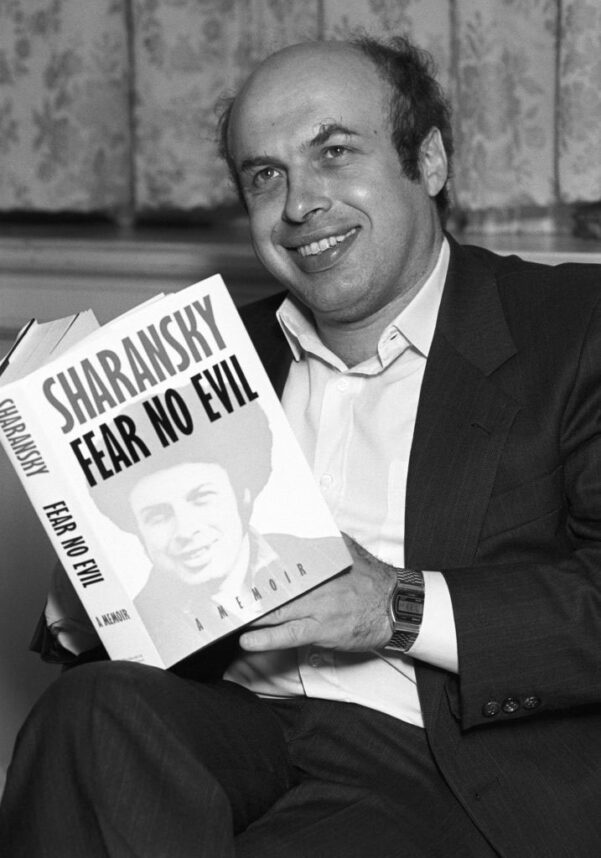


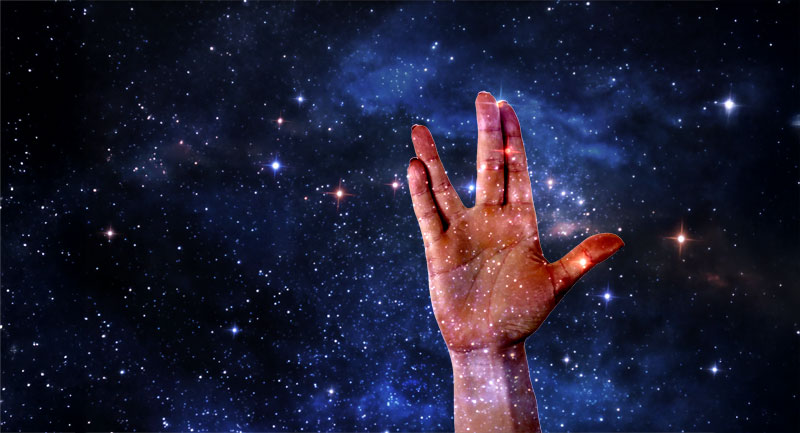
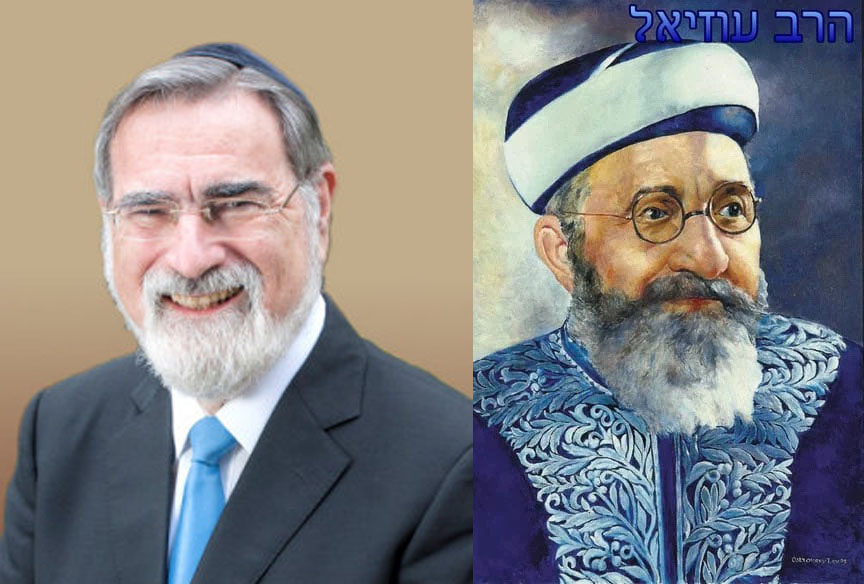
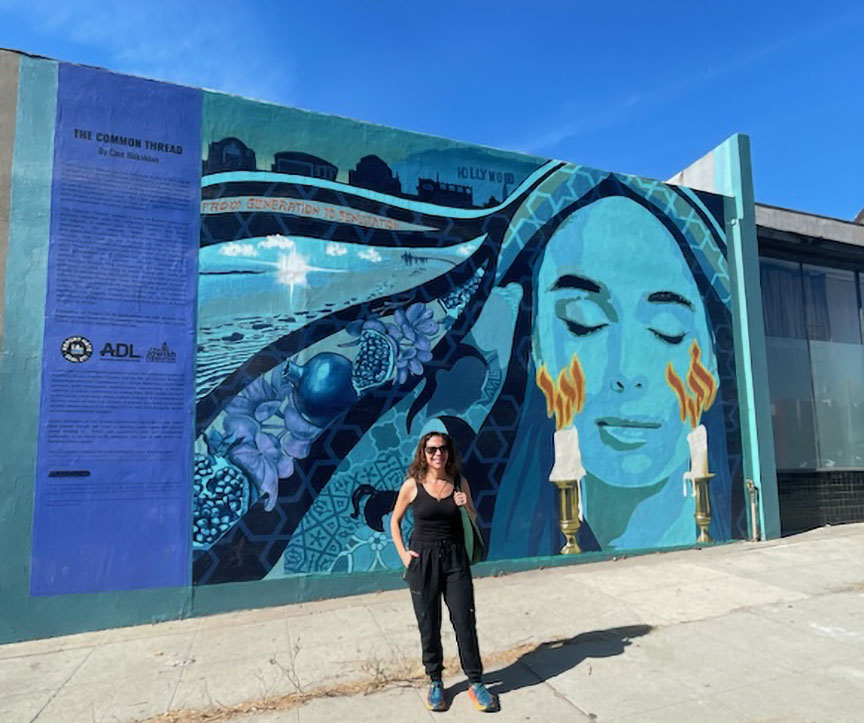

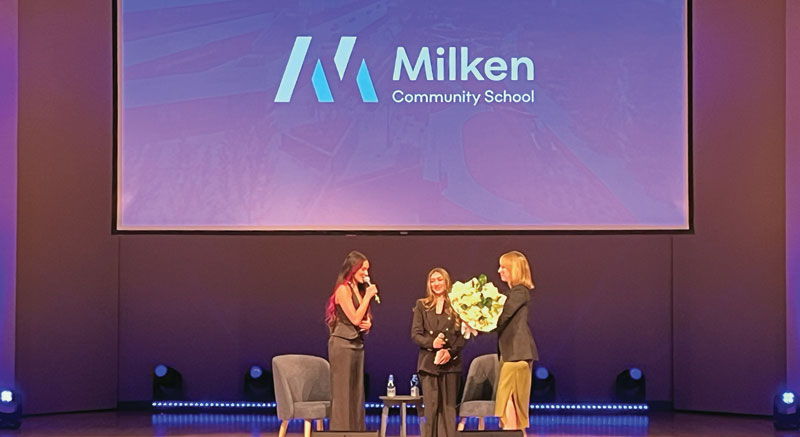





 More news and opinions than at a Shabbat dinner, right in your inbox.
More news and opinions than at a Shabbat dinner, right in your inbox.